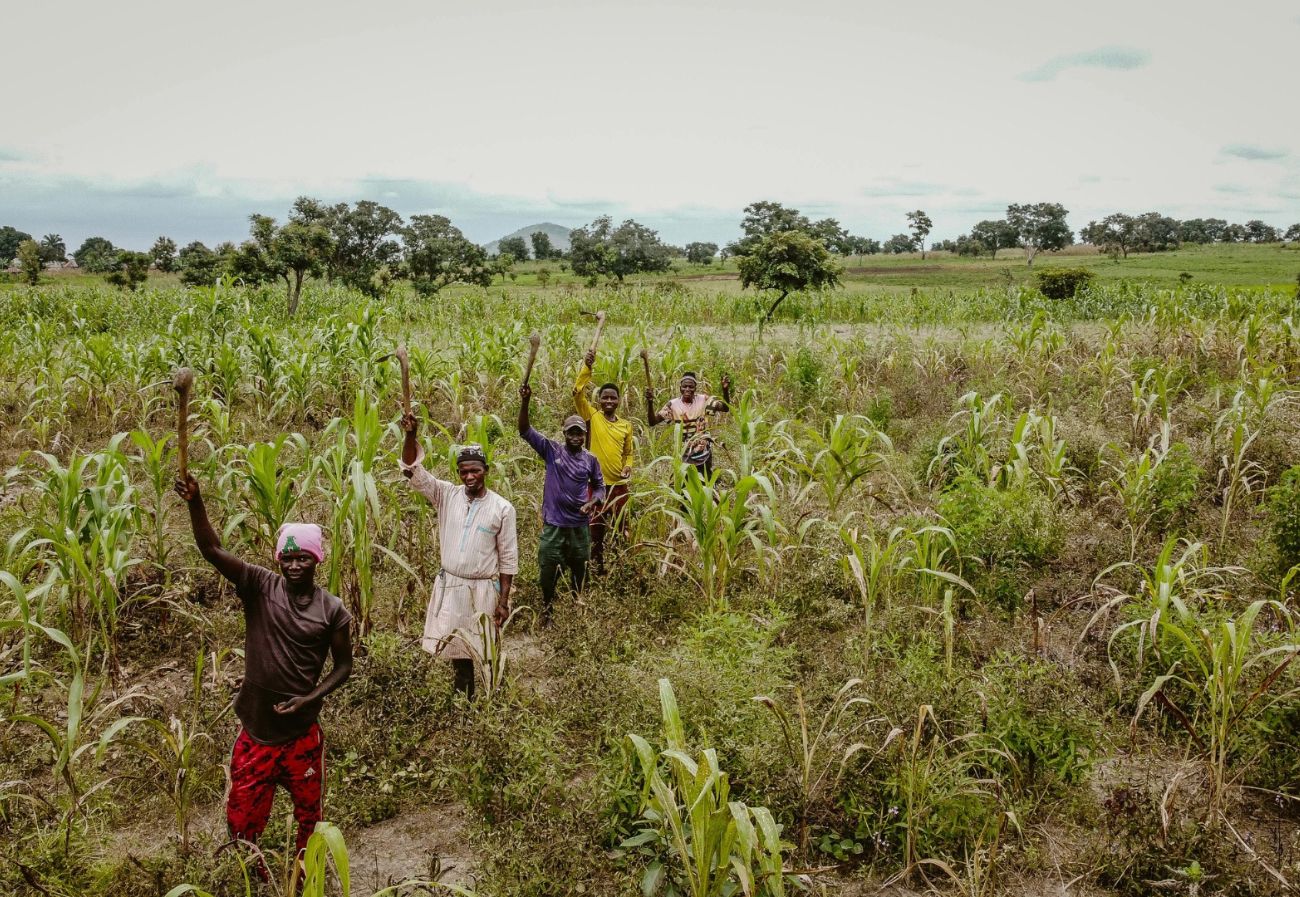Farmlogics x Guinness Ghana Breweries (GGB) – Digitally mapping farmers and farms to strengthen the sorghum value chain
Guinness Ghana Breweries Plc (a subsidiary of Diageo) has committed to increasing the share of raw materials sourced locally for its beverage production. To achieve this vision, the company needed a way to profile farmers, map farmland, and gain reliable visibility across its sorghum supply chain in Northern Ghana.
Farmlogics partnered with GGB to deliver a digital farmer profiling and farm mapping solution —building transparency, improving traceability, and enabling data-driven decisions for over a thousand acres of sorghum cultivation.
About Guinness Ghana Breweries
Guinness Ghana Breweries Plc (GGB) is one of Ghana’s leading beverage companies, producing both alcoholic and non-alcoholic drinks. As part of Diageo, GGB combines global standards with a strong local focus. The company works with more than 25,000 smallholder farmers across Ghana to secure sustainable raw material supply chains.
To strengthen its sourcing strategy, GGB prioritized the development of the sorghum value chain in five regions of Northern Ghana—ensuring farmers benefit from secure market linkages while the company increases its share of locally sourced inputs.
The Challenge
Despite its large farmer network, GGB faced key challenges in validating and supporting farmers within its sorghum supply chain:
- Lack of baseline data on farmers, fields, and farm sizes
- Limited visibility into the exact acreage under sorghum cultivation
- Delays in data collection and reporting from aggregators
- Risks in planning and sustainability due to scattered and inconsistent information.
- Diculties in assessing opportunities and challenges across farmer groups
To overcome these barriers, GGB needed a reliable system that could provide farmer-level visibility, ensure traceability, and deliver actionable insights.
The Farmlogics Approach
Farmlogics designed and implemented a digital profiling and mapping project that combined technology with on-the-ground execution.
Farmer Profiling and Mapping
Teams of trained field enumerators visited farmers and captured detailed data, including demographic information and farm characteristics. Using the Farmlogics Survey App, they profiled 164 farmers and digitally mapped 268 farms across three aggregators—covering more than 1,000 acres of sorghum.
Technology and Platforms
A mobile application enabled real-time data capture, mapping, and validation. GPS devices were used alongside the mobile app to ensure mapping accuracy. A centralized web platform consolidated all farmer and farm data, enabling reporting, insights, and risk/opportunity analysis.
Collaboration with Aggregators
Farmlogics worked closely with four aggregators and their lead farmer networks. Lead farmers played a critical role in mobilizing aliate farmers, supporting enumerators with transport, translation, and logistics, and ensuring smooth execution despite challenges of terrain, accommodation, and weather.
The Impact
The project gave GGB unprecedented visibility into its sorghum value chain:
- 1,020 acres mapped across Northern Ghana
- 164 farmers profiled (151 male, 13 female) with detailed demographic and farm-level data 268 farms digitally mapped, creating a reliable baseline for planning and monitoring Average farm size per farmer: 6.22 acres
- Reliable insights into age distribution, gender participation, and regional dierences across aggregators
With this data, GGB now has a consolidated farmer database, stronger traceability, and actionable insights to guide sourcing, training, and sustainability programs.
Impact at a Glance
- 1,020 acres of sorghum digitally mapped
- 164 farmers profiled across 3 aggregators
- 268 farms included in the digital database
- Average farm size: 6.22 acres per farmer
Building the Future of Local Sourcing
By working with Farmlogics, Guinness Ghana Breweries has laid the foundation for a more transparent, resilient, and sustainable sorghum value chain. The profiling and mapping
project not only strengthens the company’s local sourcing goals but also empowers farmers with visibility and recognition in a growing supply chain.
[Talk to us about building sustainable value chains with digital tools →]

